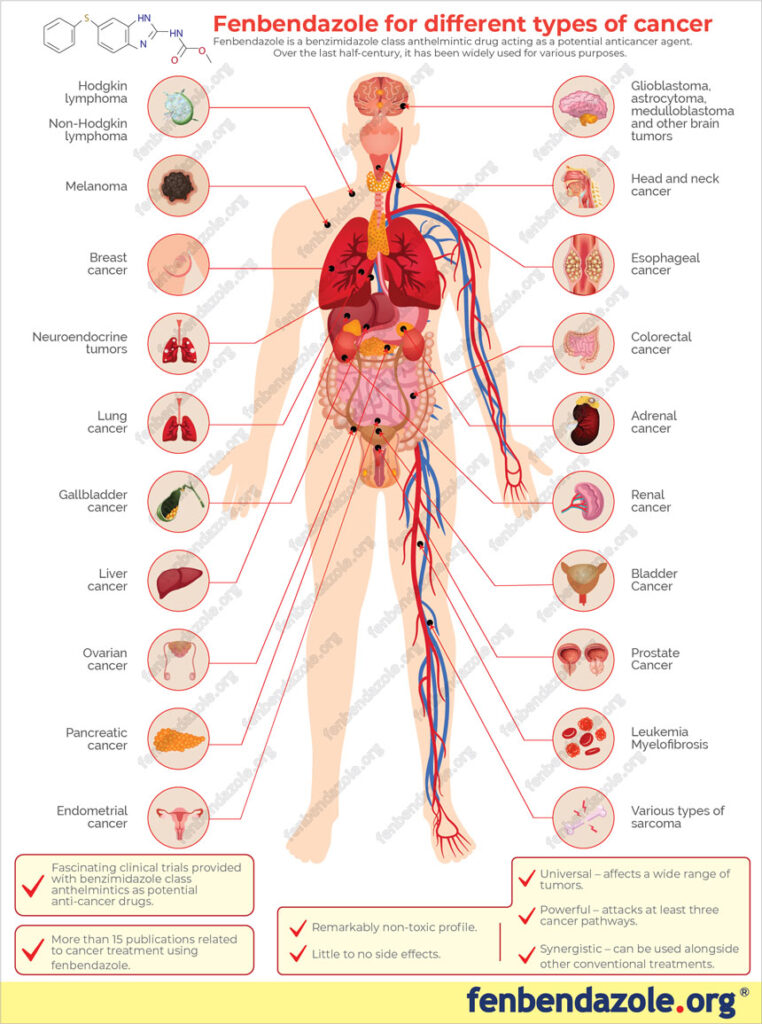A popular deworming drug for dogs is also being used by cancer patients to treat their disease. This commonly prescribed medication is called fenbendazole and has been shown to kill tumors in mice. It is often recommended in combination with other treatments, including radiation and chemotherapy. However, many questions remain about whether fenbendazole is safe for humans and how it works.
Fenbendazole is a benzimidazole antiparasitic agent that has been demonstrated to have potent in vitro antitumor effects. It inhibits microtubule polymerization and causes cancer cell death through multiple pathways. It is able to cross the blood-brain barrier and induce apoptosis in brain cells. It is also able to counteract the cytotoxic effects of some chemotherapeutic agents.
Researchers have also shown that fenbendazole prevents cancer cells from becoming resistant to chemotherapy drugs. One of the main ways cancer cells become resistant to cytotoxic agents is by expressing P-glycoproteins, which act as pumps and eject the drug before it can exert its anticancer effect. Fenbendazole does not bind to these transport proteins and is not ejected by them.
A recent report describes a case of an 80-year-old woman with non-small cell lung cancer (NSCLC) who self-administered fenbendazole to treat her NSCLC. This patient experienced a dramatic response, resulting in a significant improvement in her quality of life. The patient’s tumor size was measured and found to have decreased significantly. However, the patient later developed severe liver damage. This case suggests that a patient should only use fenbendazole under the supervision of a health care professional. fenbendazole for humans
